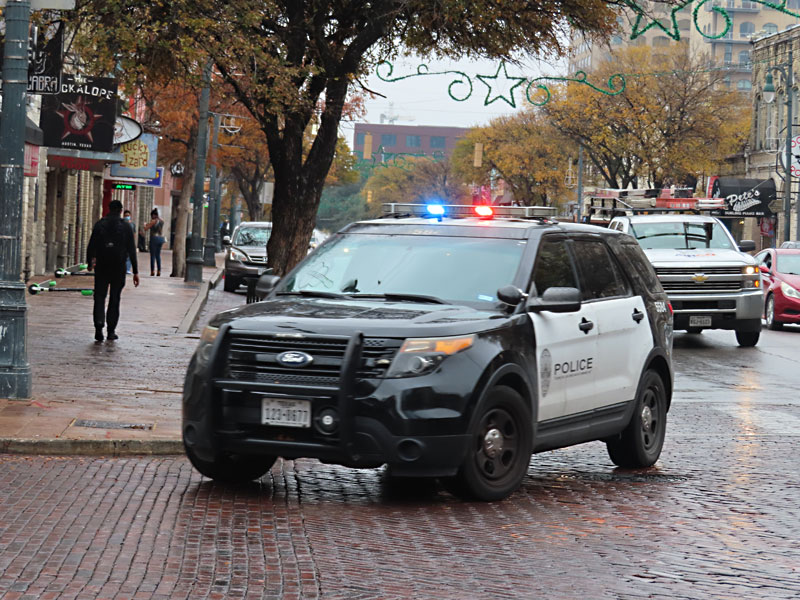City, Police Union Try to End-Run Citizen Initiative for Police Oversight
Oversight, undervalued
By Austin Sanders, Fri., Nov. 11, 2022
The city of Austin will sit down with the Austin Police Association today, Nov. 10, to hold a momentous meeting that could determine what police accountability looks like in Austin over the next four years.
The city Labor Relations Office has been negotiating with APA, the labor union representing Austin police officers, since May to develop a new contract – known as a meet and confer agreement – that will establish officer pay and benefits, lay out rules for promotion, and control how the city's police force should be held accountable to the people it serves through civilian oversight. The agreements typically last for four years unless both parties agree to shorter terms.
Ever since the current meet and confer framework took effect in 1999, the APA and the city have sought with each contract to calibrate the balance between civilian oversight, which justice advocates and Council members want, and the better pay and benefits that the union wants. This puts the city – and the community advocates who support a more expansive and transparent system of police oversight – in a precarious position: More oversight is good, but tanking the city budget to get it is bad. That first 1999 contract, which created the former Office of the Police Monitor, elevated Austin's officers from the lowest- to the highest-paid among the big Texas cities, and the police budget has consumed a growing share of the city's tax-supported General Fund ever since.
This leads us to this week's pivotal moment in the current police labor talks. In June, APA proposed a compensation package that would amount to a 20% pay increase, over the life of the four-year contract, for officers with more than four years of experience at APD. (Officers with up to three years of experience would get 1.5% annual pay increases; commanders would get 3%.) Four months later, the city responded with an offer of 1.5% pay increases each year of the contract. A market study commissioned by the city found that, even when cost of living and labor market conditions are controlled for, the base wage paid to APD officers remains higher than in Houston, San Antonio, or Dallas.
But APA declared at the Oct. 26 bargaining session that the "insulting" offer would do little to alleviate the department's vacancy rate. The two sides met again on Nov. 1 to discuss police oversight and accountability. But the current meet and confer process has a unique wrinkle: efforts to protect oversight from being the usual bargaining chip. Earlier this year, a coalition of criminal justice advocates successfully placed a citizen initiative, the Austin Police Oversight Act, on the May 2023 ballot.
If voters approve the measure, the city would be prohibited from bringing a meet and confer agreement to Council for approval unless it meets a range of criteria intended to strengthen civilian oversight over APD. That would make the contract negotiation process much more difficult, as APA has already made its distaste for the APOA clear and is likely to sue the city to block its implementation if it passes.
APA President Thomas Villarreal's primary goal for a new contract is to fill officer vacancies. He estimates the current sworn force is around 1,500 officers (1,812 positions are authorized in this year's budget), and he says patrols are frequently stretched thin, requiring other non-patrol units to cover shifts. The best way for APA to impact recruitment and retention is by bargaining for better wages and working conditions. He sees civilian oversight as one of those conditions: "The level of oversight APD undergoes is far greater than any other city entity," Villarreal said, "which we are proud to participate in. APA's goal is to help build a system of oversight the community is comfortable with that also protects the rights of our members."
City staff has drafted its own ordinance for Council to consider alongside a meet and confer agreement before the APOA goes before voters. Sources indicate that City Manager Spencer Cronk appears to be directing staff to make sure a package is hammered out and sent to this Council for approval before a new mayor and at least three new CMs take office. (Staff hoped to have the package voted on at Council's Nov. 3 meeting, but CMs objected and the plan fell through.) The city declined to comment on negotiation strategy, but said, "The City Manager remains laser-focused on successful recruitment and retention" and wants "a fair labor agreement, coupled with a strong and legally binding oversight ordinance."
The meet and confer agreement would supersede the oversight provisions included in either ordinance, and community advocates fear the result might be weaker civilian oversight than is the case today. According to Kathy Mitchell, an organizer with Just Liberty who has followed the contract negotiation process closely, the compromise could further weaken the Office of Police Oversight, already hobbled after APA won an arbitration hearing in January that limited the office's role in investigations of complaints against APD officers.
Mitchell says Cronk's approach would lead to "a completely different type of civilian oversight that has never been called for by anyone in this community," keeping secret evidence of misconduct allegations in officer personnel files (the black box known as the "G file"), hampering APD officers' ability to file anonymous complaints against colleagues, and changing the types of complaints OPO has a chance to review in the first place. If Council adopts Cronk's compromise and voters approve the APOA, the oversight protections included in APOA would not take effect until 2027 when the next police contract is negotiated.
Compounding the fears among advocates, city ordinances approved by petition initiative are shielded from Council amendment for only two years. That means a future Council could water down oversight under the APOA before 2027 contract negotiations roll around.
Mitchell and other advocates are urging Council to approve a short-term contract rather than a four-year deal. "A short-term contract resolves any concern about police benefits, allows the voters to decide if they want the Austin Police Oversight Act, and if it passes, gives the city and the police association time to come back with a long-term contract that fully implements the will of the voters."
Got something to say? The Chronicle welcomes opinion pieces on any topic from the community. Submit yours now at austinchronicle.com/opinion.







